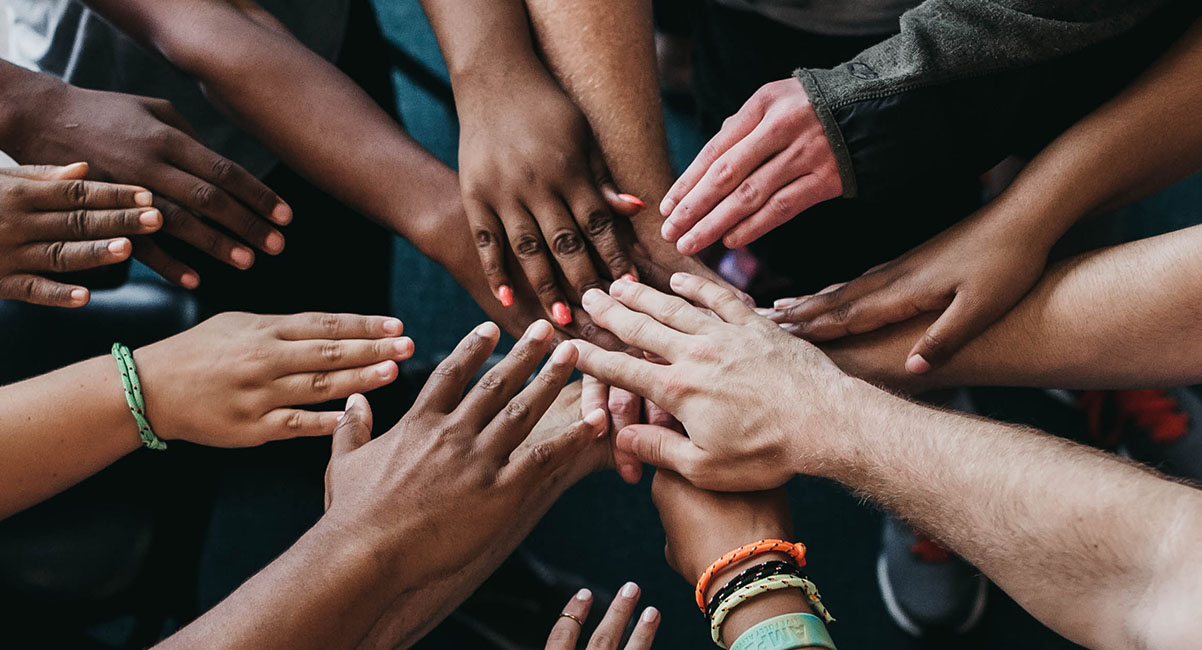
The importance of a real social network
Links in some blog posts may earn a commission for The Brain Cleanup Coach.
Do you have a social network?
I’m not talking about a Facebook or Instagram account. Or any other online account that connects you to other people.
I’m talking about YOUR tribe, not one you joined through social media. Granted, groups on social media can result in finding someone to invite into your own personal tribe, but if your supportive connections only exist in a digital space, that’s not the optimal way to support your wellness.
Here’s why
I’m currently reading “The Body Keeps the Score” by Dr. Bessel Van Der Kolk. It’s a fascinating look at trauma, and what is required to heal from it. (If you have experienced trauma that still haunts you, or you love someone in your life that was affected by a traumatic event, this book is a must read.)
The book references the Polyvagal Theory by Stephen Porges (which is also referenced in “Accessing the Healing Power of the Vagus Nerve”, another fascinating book), which explains 5 different modes that the vagus nerve controls. (Think of the vagus nerve as a master nerve line in the nervous system.) The vagus nerve is responsible for making a body feel relaxed enough to socially connect, or scared enough to fight, flee, or freeze.
Regarding the social connection aspect of the vagus nerve, when faced with a problem, if a human nervous system is in healthy working order, we will get prompts from that system to reach out for help in some way. When we surround ourselves with a supportive social network, we know who we can reach out to. Even if that person doesn’t have an exact solution, they may lead us to an answer, or their support might be enough to get us to our own answer.
Too much expectation
For a moment, let’s address healthy expectations of your social network, and how unhealthy expectations can work against your creating and keeping it.
A network, as it implies, is more than one. You could have a network of family members, a network of close friends, a network of business associates, and so on. If you assign too much expectation or responsibility to a select few in your network, this puts a big ask on them. And if they can’t always provide the support or answers you’re looking for, this can create disappointment for you.
The more you are disappointed, the more likely you are to isolate yourself from the network. This puts your vagus nerve in a quandary, as often in life the safest nervous reaction is usually to reach out for help rather than fight, flee, or freeze. Having a robust social network to connect with provides us more options for safety. But disappointment makes us feel unsafe, and so we end up in a catch 22
The solution
There’s one obvious way to avoid this, even though it might sound counter-intuitive to some. Lower your expectations about everyone in your social network, especially those you depend on the most. Every human has their own innate strengths, and their own shortcomings. If you haven’t seen a person’s faults yet, it’s only a matter of time. And if you’re putting too much expectation on just a few people because you fear being disappointed by others, this actually crates less safety than more.
Your brain evolved to connect out to other brains. But obviously brains can work against themselves when their own expectations create anxiety and fear. I know, crazy town, but that’s part of functioning through computers made of flesh and blood. If you are highly sensitive and have a hard time functioning around a larger network that’s ok. You don’t need to have an expansive social network. I don’t.
The more important takeaway here is releasing any high expectations you might have regarding the people you do have in your network. High expectations inevitably lead to seeing things that are “wrong” in the tribe, but your brain is also driven to always be connected to a tribe. Being too critical of that tribe keeps your nervous system in a constant state of unease.
The more you recognize that your tribe, or social network, is imperfect and full of people with brains that are also deeply afraid of being alone, the more compassion you can extend to them that might take them off the hook of fulfilling more roles than they are able to in your life. And when you can do that, you can mirror it towards yourself, which in turn will signal your brain that you are one of its tribe, and it can feel safe with you.
Offer to help
If you suffer from anxiety because you have a hard time connecting to others, I might be able to help. Email sarah@braincleanupcoach.com to schedule a time for a no-cost chat.
If you enjoyed this article you might also like:




